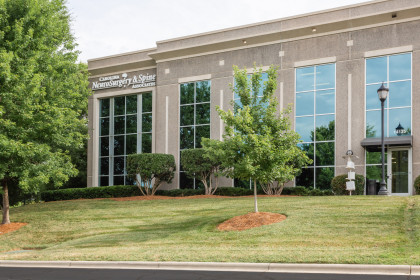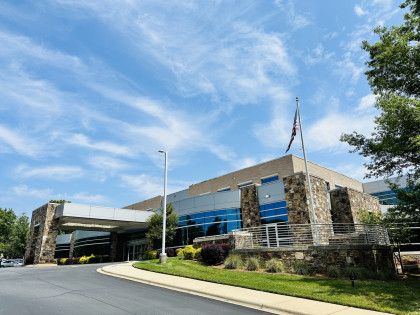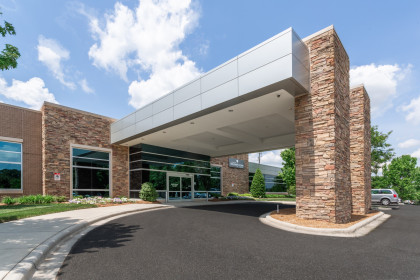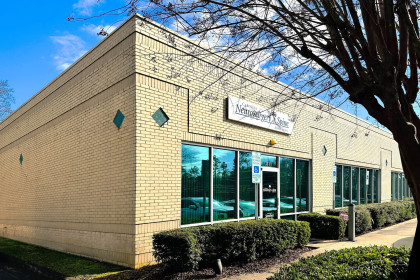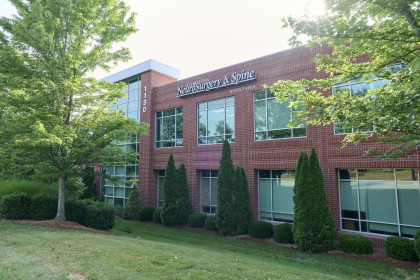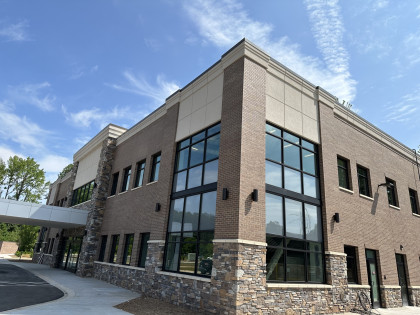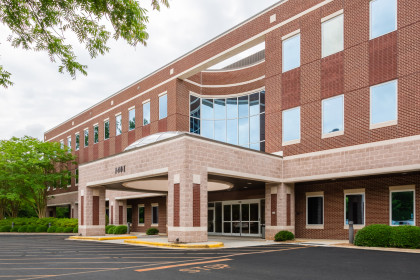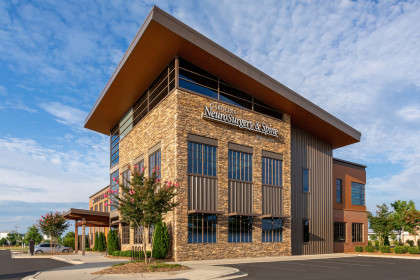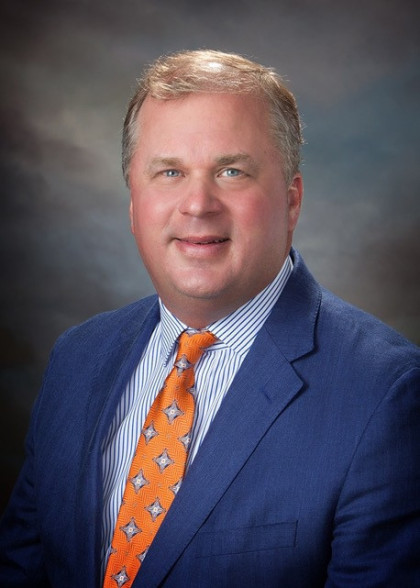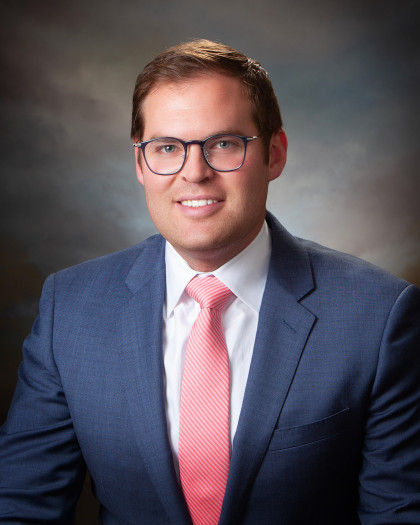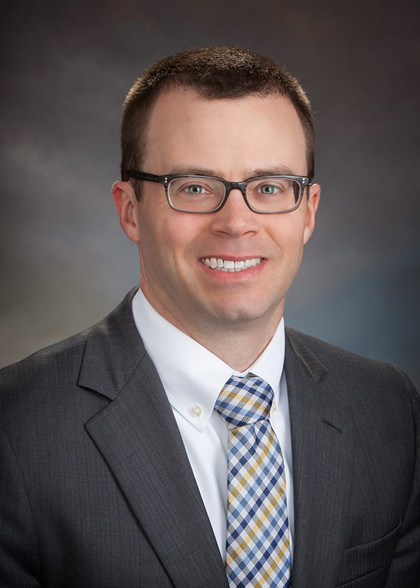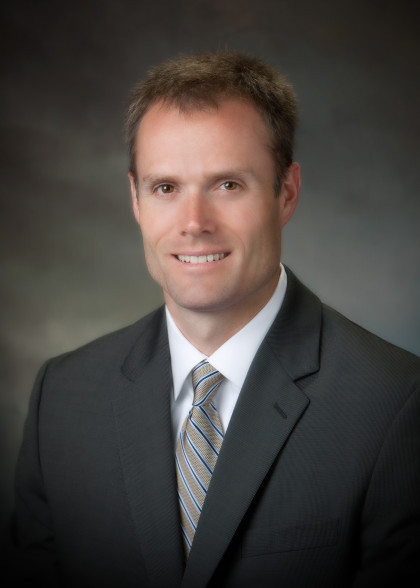Expert Neuroendovascular Surgeon in North Carolina and South Carolina
Neuroendovascular Surgeon at Carolina Neurosurgery & Spine Associates
At Carolina Neurosurgery & Spine Associates, we’re dedicated to providing expert adult and pediatric neuroendovascular diagnosis and treatment options.
Neuroendovascular surgery is a specialized field that combines neurosurgery and interventional neuroradiology to treat a range of conditions that once could have been considered inoperable. It’s also a powerful diagnostic tool, allowing surgeons to use surgical instruments that pass through the blood vessels to confirm a diagnosis without resulting in surgical diagnostic options. During neuroendovascular surgery, thin, flexible tubes called catheters are inserted into blood vessels and guided by imaging techniques like angiography or fluoroscopy to the affected area of the brain or spinal cord.
Neuroradiology is a type of diagnostic radiology that can help doctors diagnose and treat disorders of the brain, spine, head, and neck using neurological imaging techniques like MRI, CT, and angiography to be able to visualize the affected area of the brain or spinal cord.
Advancements in neuroendovascular surgery have made it a safer and more accessible option for patients. At Carolina Neurosurgery & Spine Associates, we are committed to providing comprehensive care for various vascular diagnostics related to the brain and spinal cord, including aneurysms, AVMs, atherosclerosis, and acute stroke treatment. Our expertise also expands to pediatrics, further expanding the reach of this innovative approach to patients of all ages.
Neuroendovascular surgery is minimally invasive and has proven highly effective in diagnosing and treating:
- Strokes
- Brain aneurysms
- Tumors
- Arterial venous malformations (AVMs)
- Intracranial atherosclerosis
- Blocked arteries
Traditional surgical options, often called “open surgery,” involve cutting the skin and tissues, allowing surgeons to have a full view of the organs or bodily structures they’re operating on. This surgical approach can often result in weeks or months of recovery time; however, it’s common for neuroendovascular patients to return to their regular activities almost immediately with their medical team’s approval. The benefits of neuroendovascular surgery include:
- Shorter hospital stays
- Reduced risk of complications such as post-operative infection
- Less discomfort, pain, and scarring
- Faster recovery time
Can My Vascular Surgeon Provide Neuroendovascular Treatment?
Vascular surgeons perform both open surgical and minimally invasive procedures to remove blockages from the inner walls of the arteries, repair damage to the vascular system, and focus on restoring healthy blood flow throughout the body. Vascular medicine treats the health and function of the vascular system, the network of blood vessels, arteries, and veins, a complex system responsible for blood circulation. Vascular surgeons treat and manage diseases and damage to the veins and arteries throughout the body except for the brain and heart. It’s likely your vascular surgeon would refer you for neuroendovascular services if you’ve been diagnosed with or are suspected of having a vascular disease of the spine or brain.
What Happens During Neuroendovascular Surgery?
Neuroendovascular procedures often begin with angiography of the brain, face, or spine to confirm the suspected diagnosis and provide the medical team with a visual roadmap of the affected blood vessels, tumor, or disease. This approach requires access to the blood vessel via a small incision in the leg so the surgical team can insert a catheter through blood vessels with the guidance of X-ray imaging to reach the target area. These minimally invasive methods enable the treatment of potentially life-threatening conditions without the need for open surgery of the skull, neck, or back, which can prolong recovery times and increase the risk of complications. A dye is injected to highlight the damaged or diseased blood vessels, while imaging is taken from several angles. Once the catheter is in place, the surgeon can perform the necessary procedure. Neuroendovascular procedure types include:
- Thrombectomy
- Balloon angioplasty
- Stenting
- Coiling
Neuroendovascular Surgery Treatment
Neuroendovascular surgery offers a minimally invasive option for life-threatening conditions. The idea of facing significant surgery in the wake of a severe diagnosis can be challenging for a patient and their families. Neuroendovascular makes treating the following conditions easier on the patient and the families, allowing them to return to a healthy way of living faster, with less risk.
Aneurysms
An aneurysm is when a bulge occurs in a blood vessel, weakening part of the artery wall and causing the blood vessel to widen.
Symptoms of an aneurysm include:
- A severe onset of a headache is often described as the worst headache of your life or a “thunderclap headache.”
- Stiff neck
- Blurred or double vision
- Pain above and behind the eye
- Nausea and vomiting
- Seizures
If you think you’re experiencing the symptoms of an aneurysm, seek emergency medical treatment.
The symptoms of an aneurysm are frightening. Aneurysms were historically challenging to treat with traditional neurosurgical techniques, especially if they were located in complex areas of the brain. Neuroendovascular approaches now offer a new opportunity for aneurysm treatment. Many patients undergoing this minimally invasive treatment for aneurysms can be discharged from the hospital the day after the procedure if their medical team deems it appropriate, allowing them to return to their everyday lives quickly without the extended recovery time and pain of open surgery.
Stroke
A stroke is caused when the blood supply is interrupted to part of the brain, depriving it of oxygen and nutrients, which can cause the brain cells to die within minutes.
Symptoms of a stroke include:
- Sudden severe, unexplained headache
- Sudden dizziness
- Sudden confusion
- Sudden trouble speaking and understanding others
- Sudden explained weakness and numbness in the arm, leg, and face, especially on one side of the body
- Sudden vision changes
If you think you’re experiencing the symptoms of a stroke, seek emergency medical assistance.
As the leading cause of death and disability affecting both adults and pediatric patients, neuroendovascular surgery can offer a faster response to acute stroke treatment, extending the time frame beyond the traditional three-hour window for intravenous medications. Neuroendovascular treatment is becoming increasingly favored for conditions involving the subclavian or extracranial vertebral arteries.
Intracranial Atherosclerosis
Intracranial atherosclerosis is when arterial plaque buildup causes a narrowing or blocking of arteries that supply the brain with blood and oxygen and is only typically diagnosed after a stroke has already occurred. As intracranial atherosclerosis is known for causing ischemic stroke, it has traditionally been treated with long-term anticoagulation despite the still significant risk of stroke present. Recent advancements in stent design have made angioplasty and stenting viable options for treating clinically substantial intracranial vascular disease, offering a more optimistic outlook for intracranial atherosclerosis patients.
Prevention is a big part of living with intracranial atherosclerosis, so talk to your doctor if you have a family history of stroke or a prior history of stroke or heart attack. Take steps to minimize your risk by maintaining a healthy pressure, increasing exercise, quitting tobacco products, and maintaining a healthy diet and weight.
Arterial Venous Malformations
Arterial venous malformations (AVMs) are a group of abnormal blood vessels that can form tangled connections between arteries and veins, bypassing normal tissues, allowing blood to flow directly from arteries to the veins without passing through the capillaries, preventing the exchange of nutrients and oxygen to the brain.
Symptoms of AVM include:
- Seizures
- Vision problems
- Memory problems
- Confusion and hallucinations
- Numbness or tingling
- Headaches
If you suspect you or a family member is having symptoms associated with AVM, seek emergency medical attention immediately.
AVMs in the brain can lead to life-threatening intracranial bleeding. Neuroendovascular techniques employ a catheter to block the blood vessels of the AVM using liquid adhesive or small particles, reducing or eliminating the AVM's blood supply and making surgical removal of the AVM faster and safer.
Tumors in the head and neck, as well as some brain tumors, can pose significant challenges during surgery due to their location and abundant blood supply. Neuroendovascular surgery enhances surgical safety by blocking the blood vessels supplying the tumor before surgery, reducing the risk of uncontrolled bleeding during surgery, and minimizing the need for blood transfusions.
Pediatric Neuroendovascular Surgeon at Carolina Neurosurgery and Spine Associates
We know there’s nothing harder for a parent than for their child to need intensive medical care. At Carolina Neurosurgery & Spine Associates, we’re here to help guide you and your child through diagnosis, treatment, and recovery. Our dedicated, expert team provides compassionate and comprehensive treatment for childhood vascular disorders such as:
- Aneurysms
- Arteriovenous malformations
- Moyamoya disease
- Cavernous malformations
Expert Neurovascular Surgeons In North Carolina
At Carolina Neurosurgery & Spine Associates, we offer a compassionate, comprehensive approach to neuroendovascular surgery for patients of all ages. For more details or to refer a patient, please visit our website or reach us at 800-344-6716 (Charlotte area) or 336-272-4578 (Greensboro area). You're not alone in this journey, and neuroendovascular surgery offers newfound treatment and recovery options for pediatric and adult patients.
Most treatments in the Charlotte area are through the Atrium Health Neurosciences Institute and the Atrium Health Levine Cancer Institute at Atrium Health Carolina's Medical Center. To learn more, contact us or request an appointment online. Our clinics have multiple locations, serving patients in Charlotte, NC, Concord, NC, Gastonia, NC, Greensboro, NC, High Point, NC, Huntersville, NC, Kernersville, NC, Matthews, NC; and Rock Hill, NC.


